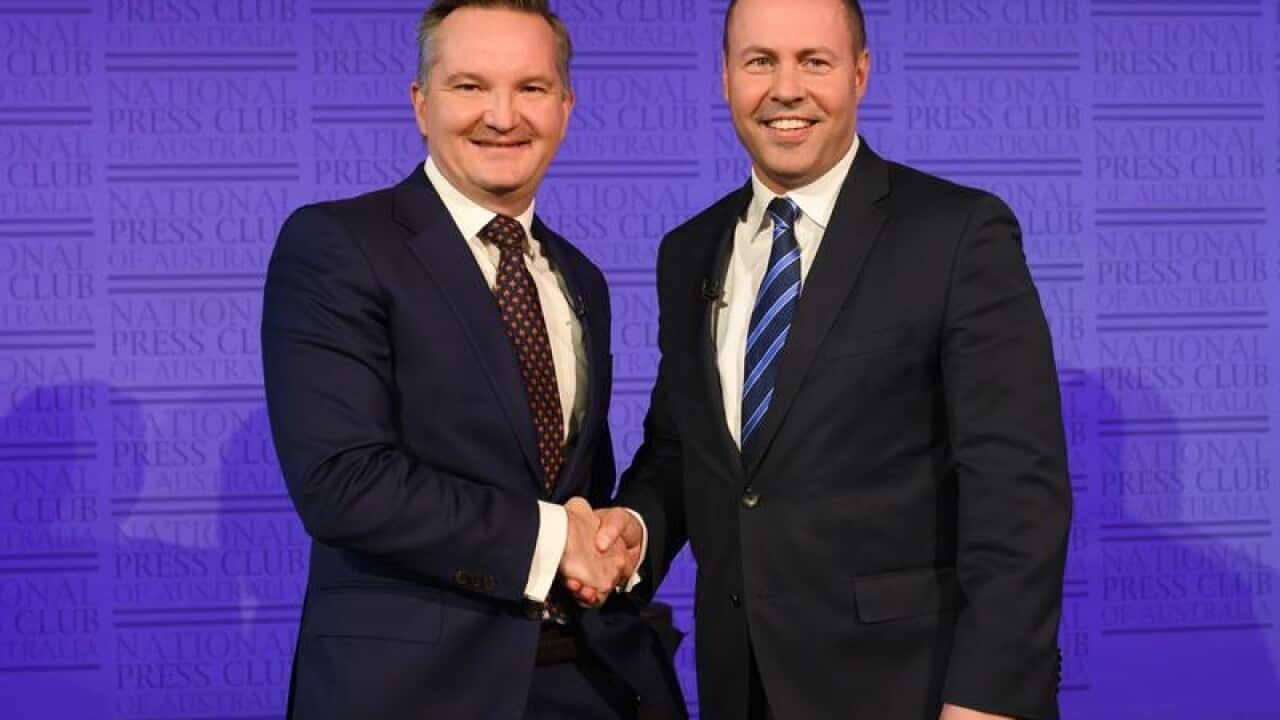Treasurer Josh Frydenberg says the government won't be revisiting corporate tax cuts for Australia's largest businesses over the next decade.
Senate opposition to tax cuts for the biggest firms forced the government to cut back on its ambitions and deliver them only for small and medium sized businesses.
Asked at a National Press Club debate on Monday what were the government's intentions over the next decade, Mr Frydenberg said: "We're not planning changes on the large companies."
Responding to a follow-up question, he said: "We have no plans to change the company tax rates. We tried that and you know what the story is."
Shadow treasurer Chris Bowen said the only reason why the tax cuts did not become the law of the land is because of Labor's opposition.
"If the Liberal Party is re-elected and they have a majority through a coalition of chaos with Clive Palmer and Pauline Hanson in the Senate, they will be back there," Mr Bowen said.
"'No plans' is a pretty weak defence for the Treasurer to make."
Asked a third time, Mr Frydenberg said: "I can confirm we are not coming back to the company tax cuts. There you go."
Meanwhile, federal Labor's $141 million promise to help young and old people get work has received the backing of small business, provided the red tape is kept under control.
The opposition's policy would give small businesses an incentive to employ additional employees aged under 25, over 55 and carers returning to the workforce.
Companies with turnover of less than $10 million operating for more than two years will be eligible for an additional 30 per cent tax deduction for up to five new workers' salaries for their first year of employment, capped at $50,000 per company.
Council of Small Business Organisations Australia chief executive Peter Strong said employers paying workers $50,000 would get a rebate of $1500.
"It's not an awful lot but it's not petty cash either," he told ABC Newsradio on Monday.
"It makes you think about a group you might not have thought about which is really good news."
Mr Strong said employment service providers needed to be careful not to create undue red tape for businesses.
"You can make a really good policy but if the process or communications are poor, then the policy fails. There's got to be red tape that is easy to manage," he said.
He said the program needed to be connected to vocational training programs.

